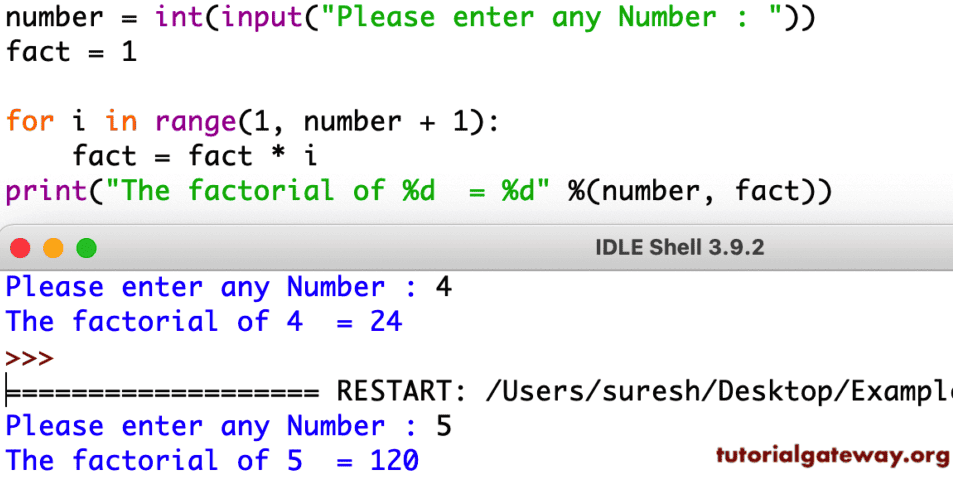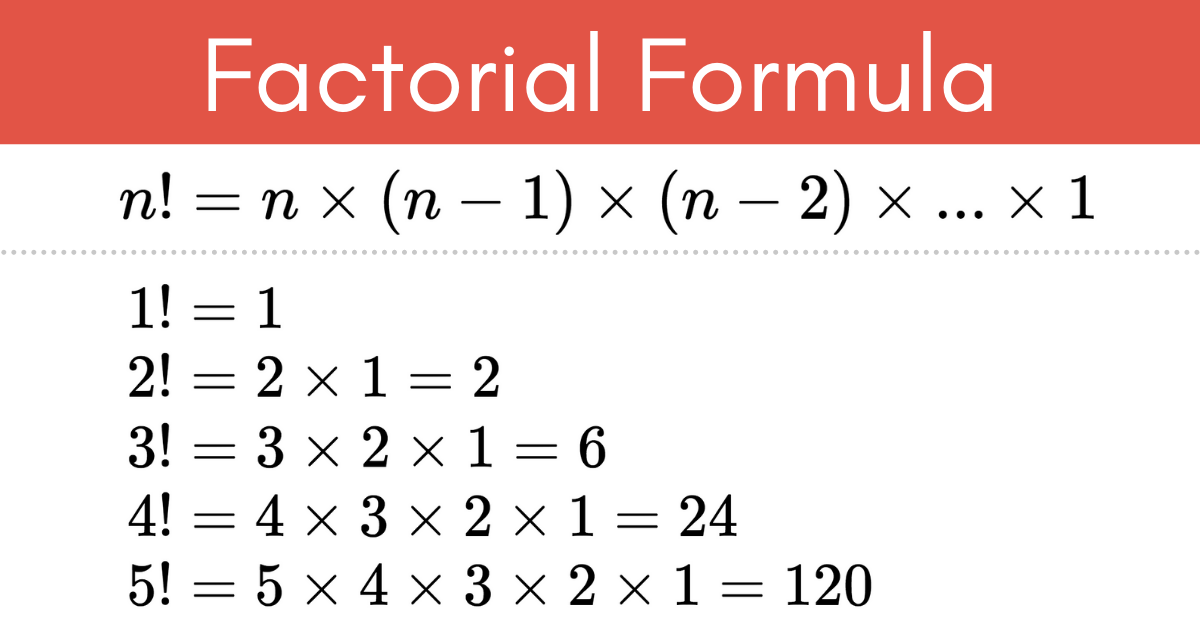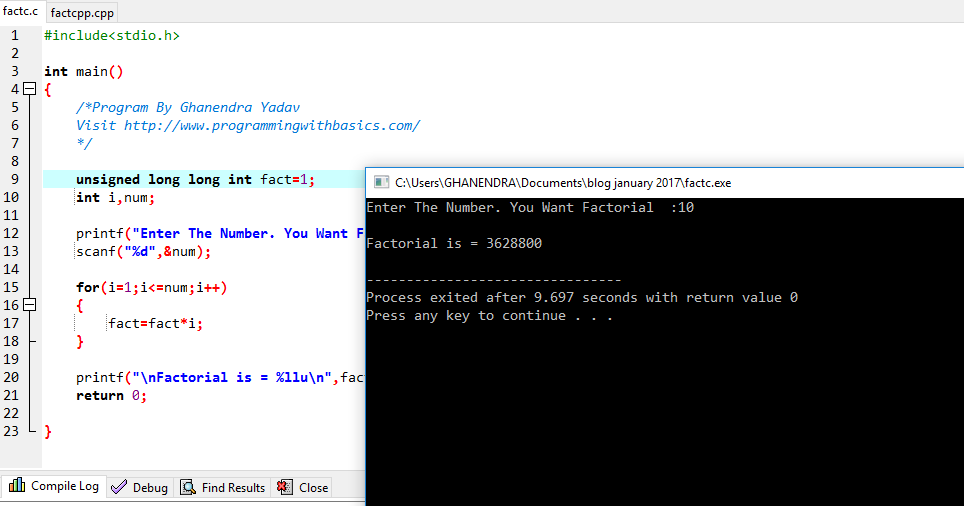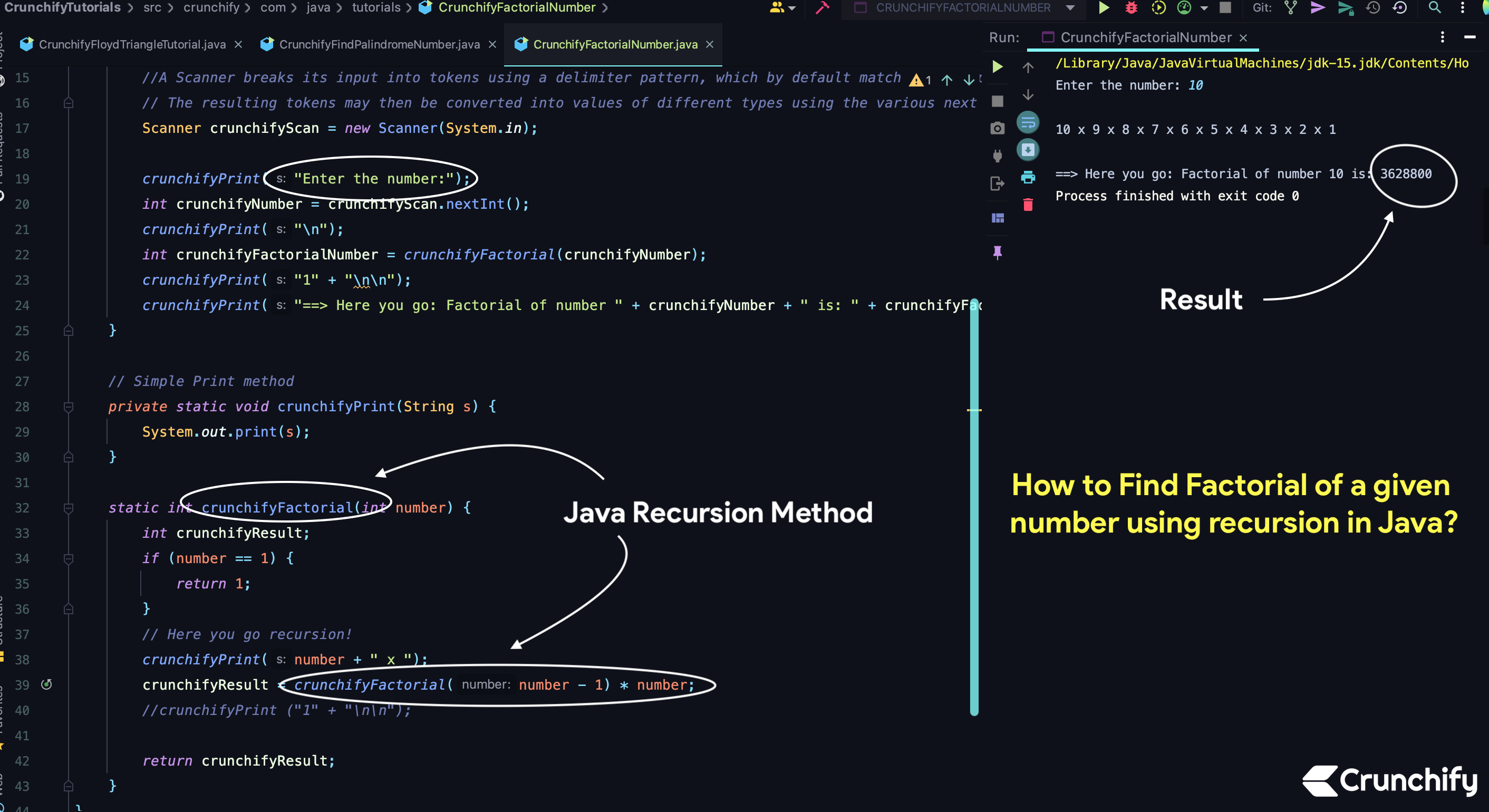Outrageous Tips About How To Write A Factorial

The factorial function is defined for all positive integers, along with 0.
How to write a factorial. The factorial of a number is the multiplication of all the numbers between 1 and the number itself. In [1]:= out [1]= plot over a. A factorial has a positive integer and an exclamation.
Factorials are rarely used on their own but occur frequently in combinations and permutations, as described below:. Factorial is a fundamental concept in combinatorics as factorials play important roles in various mathematical formulas such as permutations, combinations,. = 5 × 4 × 3 × 2 × 1 = 120.
The earliest uses of the factorial function involve counting permutations: In [1]:= out [1]= plot over a subset of the reals: Compute the factorial for the first few integers:
The easiest way is to use math.factorial (available in python 2.6 and above): Factorials (sequences and series) houston math prep. Determine the number you are finding the factorial of.
Key steps on how to simplify factorials involving variables. The factorial of a number is the product of all the integers from 1 to that number. = fact ( number ) the fact function takes a positive integer value and returns the.
They're just products, and are indicated by an exclamation mark. Until the value is not equal to zero, the recursive function will call itself. Factorials appear more broadly in.
To calculate a factorial you need to know two things: Different ways of arranging distinct objects into a sequence. Expand the larger factorial such that it includes the smaller.
For instance, four factorial is written as 4!. The factorial of a number can be easily calculated by taking the product of successive positive numbers from one to the number, for which we need. Math.factorial(1000) if you want/have to write it yourself, you can use an.
For example, the factorial of 6 is 1*2*3*4*5*6 = 720. Let’s create a factorial program using recursive functions. The formula for factorials is:
So the factorial of 2 is 2!(= 1 × 2). The factorial of a positive number is the product of all positive integers less than or equal to the value of the number itself. × n the factorial of 0 has value of 1, and the factorial of a number n is.


















